Show Us a Better Way
Okay, let me start off this year’s contest call by admitting that I am jumping on a bandwagon, or maybe just chasing after it, since I’m already a little late to this party. This year, I’m asking for work that points to the potential of science to create a better future, but I’m clinging to the coattails of some of science fiction’s greatest living writers when I do it. Neal Stephenson has started his Hieroglyph project, an anthology of hopeful science fiction. Space Command has become the fastest-funded film in Kickstarter history, in part because of its promise to deliver the “extraordinary dreams of the future” that so captivated its lead writer, Marc Scott Zicree, as a child. (Disclaimer: I am a backer. How could I not be?) In the past two years, I’ve worked hard to find underdeveloped themes in the genre and encourage writers to explore their potential. This year, I’m adding my voice the many that have begun asking “Why has science fiction become almost universally dystopian, and what can we do about it?”
In March of this year, Smithsonian magazine featured an article listing ten inventions inspired by science fiction: the submarine, the helicopter, the liquid fueled rocket, atomic power, combat information centers aboard Navy warships, remotely operated mechanical hands called waldos after the Heinlein character Waldo F. Jones who created the fictional version, the cellphone, the taser, QuickTime software, and the user-created online “multiverse” Second Life. And while I admit that the taser and the waldo have not significantly impacted my daily life, most of the others have, either directly or by increasing our (and therefore my) knowledge of the universe.
Like many of you, I fell in love with a science fictional version of the possible universe(s) that seemed expansive and full of possibilities for other ways of being, for new and better worlds, for technologies that liberated—rather than enslaved—all people. And, in part, I’m excited to LIVE in the (mostly) better world some of those visions helped to create. My smartphone? It kicks the Star Trek communicator’s ass. And not just the one in the original series. My iPad? It does nearly everything a general issue tricorder could do in the original series, and with a better form factor. If someone would build blood work and x-ray apps, it could stand in for the more sophisticated medical tricorder… and I’m not at all certain we won’t see some version of that in the near-ish future deployed in hospitals and clinics around the world.
Why, then, when so many of the innovations which define our era come directly from the imaginations of our best science fiction writers, are so few writers today engaged in creating visions of the innovations of tomorrow? (This is a rhetorical question. The reasons are many and varied, and each writer has her own muse to follow.)
You know what I liked best about Star Trek, when I first encountered it as a child? The replicator. Want to know what I liked best about it? The crew didn’t have to pay to use it. People could have what they needed—heck, what they simply wanted—and they didn’t have to stop first to decide if they could afford it. As someone who grew up in Appalachia (albeit comfortably), the idea that that in the future nobody would have to decide between good food and paying the light bill struck me as the ultimate utopia. In many ways, it still does. I’m a sucker for a good post-scarcity narrative. What would the world look like if everyone had enough food, clean water, medicine, and fuel?
You know the second thing I fell in love with in science fiction? The idea that we could go anywhere. Whether it was with Jules Verne to the bottom of the sea, or Luke Skywalker in a galaxy far, far away, the idea of (as the Redstone motto says) getting off this rock—or deeper into it—seemed the ultimate liberation. And, at least in the books that shaped my early understanding of science fiction, expanding our horizons often also meant expanding our understanding, growing and evolving as a species. Spider Robinson’s Stardance was one of the first books I bought extra copies of to give to friends. I think I read it in seventh grade, so we’re talking about loving a book well enough to spend babysitting money on buying it for other people… and there are few wages harder earned than babysitting money. Sure, we had to prove ourselves to the aliens. That was part of the beauty. Rising to the challenge, showing that we were better as a species than current geopolitics suggested. Becoming that better version of humanity.
So, this year’s contest call is perhaps the most open of any so far… all I’m asking of writers is that they show me a hopeful future made better by scientific advancement. Biotech, space travel, deep sea exploration, network technologies, interspecies communication, technologically-enabled abundance… the sort of boon you imagine for humankind doesn’t matter. All that matters is that you show us that there is still hope for tomorrow, and remind us that science is likely to lead the way to that better future.
You’ve got 5000 words in which to show us a better way. And, you know what? I have faith that you can do it, just like I have faith that we’re moving toward a future that we would want to live in. We may be taking halting steps, but we are always moving forward.
We will begin accepting submissions for our Show Us a Better Way contest on June 15th. It will remain open until August 15th. The Contest address will be abetterway@redstonesciencefiction.com. We will have a 5000-word limit and 5 cents per word will go to the winning story. Get to work!

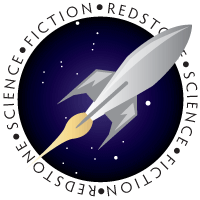
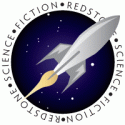



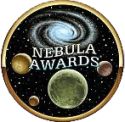
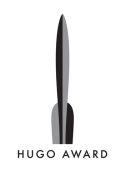
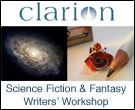



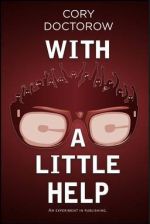
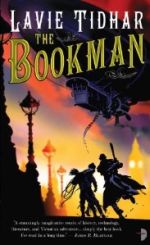
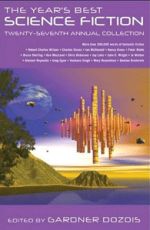


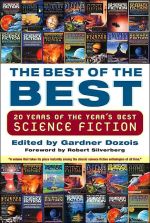


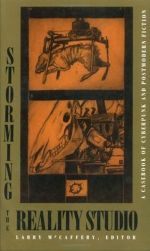



5 comments
[…] Call Show Us a Better Way by Sarah […]
[…] here: Show Us a Better Way | Redstone Science Fiction June 1st, 2012 | Tags: best-science, few-writers, innovations, our-era, sci-fi, science fiction, […]
[…] of forward-looking, positive science fiction. We encourage SF writers to read Sarah’s essay, Show Us a Better Way and submit a story for the […]
[…] This issue has stories by Amy Sundberg and Steven R. Stewart. • Sarah Einstein announces this year’s contest for stories that show hopeful futures made better by scientific […]
[…] you’re a more optimistic person than me, go forth and submit to Redstone’s contest. 5000 words, submissions close August 15. Good luck! I’m cheering for you and your crazy […]